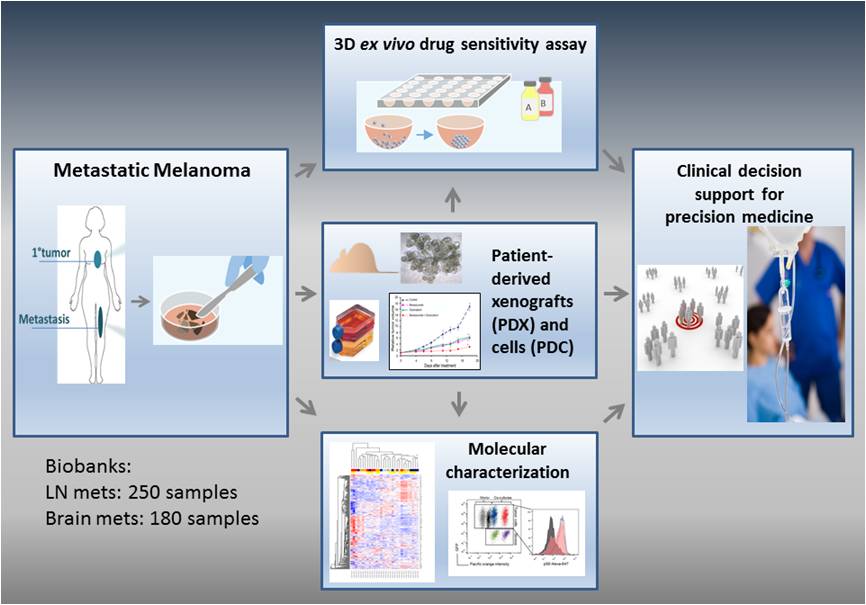Melanoma
Treatment of metastatic melanoma has experienced a revolution the last decade with the introduction of inhibitors targeting mutated BRAF and the immune checkpoints. Still approximately 50% of the patients do not respond or will acquire resistance during treatment. It is therefore a need for new and improved treatment alternatives. In our melanoma research program, performed in collaboration with Prof Vivi Ann Flørenes, Department of Pathology, we utilize patient tumor material for molecular characterization and for examination of drug sensitivity. The aim is to identify tailored treatment for subgroups of melanoma patients.

Schematic overview of research program on melanoma
Biobank maintenance and drug sensitivity testing
Close collaboration with clinical departments ensures access to fresh tumor materials from metastatic melanoma lesions (lymph nodes, lung and brain metastases). The tumor tissue is stored in biobanks for future molecular characterization, is used for establishment of patient-derived cell lines- or xenografts, or for prediction of treatment responses ex vivo. In the ex vivo drug response assay, tumor spheroids are exposed to various drugs for several days before cell viability is assessed. We are currently developing the assay to also include patients´ immune cells.

Improved treatment for metastatic melanoma
There is a need to identify inhibitors that either delay development of resistance or sensitize melanoma cells being resistant against mutated BRAF inhibitors.
Several targets and mechanisms have been investigated;
- TRAIL receptor agonist
- AXL inhibitors
AXL is a receptor tyrosine kinase shown to promote cell proliferation, migration, invasion and epithelial-to-mesenchymal transition. AXL is found overexpressed in melanoma and shown to mediate resistance to BRAF and immunotherapy. Combinatorial treatment with vemurafenib and AXL inhibition (BGB324) showed superior efficacy compared to monotreatment in melanoma PDX models. We are looking into mechanistic explanations.
- AXL and CHK inhibitors
Inhibition of AXL is also reported to increase DNA damage and reduce expression of DNA repair proteins. When combining AXL and CHK1/CHK2-inhibitors we demonstrated enhanced treatment efficacy.